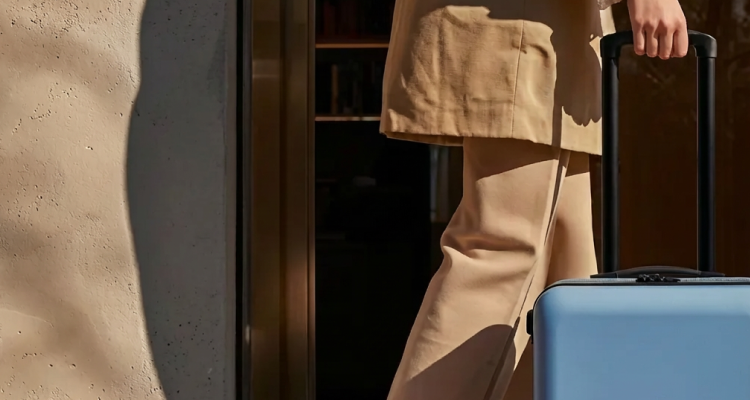Bed and breakfast (B&B) establishments have emerged as a compelling opportunity for entrepreneurs seeking to enter this lucrative market. Whether you’re a homeowner with spare rooms or an aspiring hospitality entrepreneur, learning how to start a bed and breakfast can open doors to a rewarding venture that combines personal fulfillment with financial opportunity.
The B&B accommodation market has shown remarkable resilience, with industry revenue projected to reach $6.85 billion by 2029 at a compound annual growth rate (CAGR) of 3.4%.
Understanding the bed and breakfast landscape
What is a bed and breakfast (B&B)?
A bed and breakfast (B&B) is typically an owner-occupied, private residence offering a small, personalized lodging experience — usually with 2 to 11 guest rooms — for short-term stays. The defining characteristic is the inclusion of breakfast and highly personalized hospitality, which distinguishes B&Bs from larger, less personal hotel environments.
Modern travelers increasingly prioritize unique experiences over generic accommodations, driving demand for B&Bs that deliver personalized hospitality and authentic local experiences.
According to SBDCNet, the US bed and breakfast industry includes approximately 17,000 inns and is worth approximately 3.3 billion dollars through authentic local experiences and owner-operated care.
This shift toward experiential, eco-conscious travel solidifies B&Bs’ appeal for travelers seeking memorable stays that standard hotels rarely match.
Is starting a B&B right for you?
Before diving into the practical aspects of how to start a bed and breakfast, aspiring innkeepers should assess whether this business aligns with their skills, lifestyle preferences, and financial goals.
Operating a B&B requires a unique combination of hospitality skills, business acumen, and personal dedication that extends far beyond simply renting out rooms.
- Hospitality skills: Successful innkeepers typically possess strong interpersonal skills, as guest interaction forms the cornerstone of the B&B experience. You must be comfortable welcoming strangers, managing their expectations, and providing personalized service.
- Lifestyle commitment: Innkeeping requires round-the-clock availability, particularly during peak seasons. This cannot be understated when exploring how to start a bed and breakfast in your home. This differs significantly from traditional businesses with defined operating hours.
- Financial reality (startup costs): Bed and breakfast startup costs require a significant initial investment, often ranging from $20,000 to over $200,000, depending on whether you are converting an existing home or purchasing a new property.
While profitability potential may reach up to 60% margins through optimized operations and prime locations, many small B&Bs operate primarily as lifestyle businesses rather than a sole primary income source. Profitability hinges on balancing occupancy rates, service expenses, and effective market differentiation.

Legal and financial framework
Establishing the proper legal foundation represents a critical step in learning how to start a bed and breakfast successfully.
Key legal and licensing steps
Business entity
Most B&B owners opt for a Limited Liability Company (LLC) or a Corporation to protect personal assets and maintain operational flexibility.
Licensing and zoning
Licensing varies by jurisdiction but typically requires:
- Zoning approval: Ensuring your property is legally permitted for commercial lodging use (often the hardest step).
- Safety inspections: Meeting local fire, health, and building codes.
- Permits: Specific permits are needed for offering food service (even basic breakfast items) and short-term lodging. Example: Some municipalities, like Chicago, charge $250 plus fees for permits and may mandate fingerprinting.
Specialized insurance
B&Bs require specialized policies beyond standard homeowner’s coverage. Ensure you have:
- Commercial buildings coverage for fire, flood, and vandalism
- Public liability insurance to cover guest injuries on the property
- Business interruption coverage to offset losses from unexpected closures
Understanding B&B startup costs
Startup costs vary drastically based on your property choice and condition.
| Expense category | Description | Typical cost range |
| Property acquisition/renovation | Buying a dedicated B&B property or upgrading an existing home to commercial standards (e.g., fire safety, ADA compliance). | $1,500 to $8,000 per square meter (Primary expense) |
| Licensing and permits | Zoning application fees, safety/health inspection costs, and business registration. | Varies widely by local government |
| Commercial upgrades | Upgrading kitchens, installing commercial-grade plumbing/electrical, adding dedicated private bathrooms to all rooms. | $10,000 – $100,000+ |
| Technology stack | Initial cost for B&B property management software (PMS), website development, and smart home tools. | $1,500 – $5,000+ (Annual/Subscription basis) |
Location and property considerations
Selecting the right location is one of the most critical decisions when determining how to start a bed and breakfast successfully.
Tourist destinations, historic areas, and scenic locations typically offer the best opportunities for consistent bookings and premium pricing. Properties near attractions, business districts, or transportation hubs can capitalize on both leisure and business travelers.
Ideal property size
Successful B&Bs typically feature between 3-10 guest rooms, allowing for personalized service while maintaining manageable operations. Anything larger risks losing the core “personalized” B&B experience; anything smaller limits revenue potential.
Guest room standards
Each guest room should include:
- Private bathroom facilities
- Comfortable, high-quality furnishings
- Adequate storage space and modern amenities (Wi-Fi, charging ports).
Common areas
Dedicated common areas such as dining rooms, lounges, and outdoor spaces are essential for enhancing the guest experience and justifying a premium B&B pricing strategy.
Conversion vs. acquisition
Converting your home: Offers a cost-effective entry point using existing space, but risks owner privacy and necessitates commercial-grade upgrades.
Buying a dedicated property: Ensures operational separation and scalability but requires a higher upfront investment and long-term financial commitments.
Building your business foundation
The B&B business plan
Creating a comprehensive B&B business plan forms the cornerstone of any successful venture.
Core components: Your plan must clearly define your target market, competitive positioning, financial projections, and detailed operational strategies.
Financial projections: Requires a realistic assessment of potential revenue streams based on achievable occupancy rates and expenses.
For example, a six-room property charging $150 per night could generate gross annual revenue of $328,500 if fully booked. However, using a realistic 50% occupancy rate, this revenue is approximately $164,250. This figure must cover all operational costs and debt service.
Pricing, marketing, and technology
Finding the smartest pricing strategy involves analyzing local competition, understanding your target market’s price sensitivity, and accounting for seasonal variations. Leverage dynamic pricing tools, often found within a property management software (PMS), to maximize revenue.
Technology infrastructure
Modern travelers expect seamless digital interactions. You must invest in technology for:
- Online booking capabilities for direct bookings (crucial for higher profit margins).
- Contactless check-in/keyless entry.
- Seamless guest messaging and communication throughout their stay.

Operational excellence and daily management
Establishing efficient daily operations is vital for ensuring a consistent guest experience while maintaining profitability.
As the B&B grows, staff management becomes crucial. Even small B&Bs often require part-time support for housekeeping, maintenance, or breakfast service. Use your property management system (PMS) to manage task delegation and staff scheduling.
Professional cleaning standards in particular must exceed typical expectations. Implement detailed checklists and quality control procedures to protect your investment and ensure guest satisfaction, which directly impacts online reviews.
Daily routine:
- Early morning: Breakfast preparation, staff briefing, reviewing new bookings/messages in your unified inbox.
- Mid-morning: Breakfast service and guest interaction, coordinating housekeeping/room turnover protocols.
- Daytime: Financial reconciliation, responding to guest communication, managing supplier/maintenance needs, updating inventory across all channels.
- Evening: Guest check-in/welcome, preparing for the next morning’s breakfast service, reviewing new online reviews.
Revenue optimization and guest experience
Key revenue optimization strategies
Understanding revenue streams beyond basic room rentals will significantly improve your B&B revenue and profitability.
Ancillary services: Additional services can generate supplementary income while enhancing the guest experience. These could include local tours, premium dining options, spa treatments, or cultural experience packages.
B&B monthly revenue: Well-located B&Bs in popular tourist destinations can achieve monthly revenues ranging from $1,500 to $37,500, depending on size, location, and service level.
The defining guest experience
Guest experience excellence distinguishes successful B&Bs from competitors and drives the positive reviews and referrals that fuel future bookings.
Personalized service: Creating memorable stays begins with anticipating needs and exceeding expectations through personalized service and attention to detail.
Breakfast service: Breakfast is a defining characteristic and a major satisfaction driver. Develop signature breakfast items using local ingredients to create a unique and memorable touchpoint.

Marketing, digital presence, and technology integration
Modern B&B operations rely heavily on technology to establish brand presence, sharpen operations, and enhance the guest experience.
Your website must be professional, visually appealing, and serve as the central hub for direct bookings to generate higher profit margins. Listing your property on major online travel agencies (OTAs) will increase visibility, but requires robust B&B channel management tools to synchronize rates and inventory across all platforms.
Your system should centralize the following operations:
- Reservations and calendar synchronization
- Financial tracking and analytics
- Automated guest messaging for timely, personalized communication
- Housekeeping and maintenance task management
Financial management
Successful B&B ownership requires sophisticated financial management.
Cash flow management: Due to seasonal revenue fluctuations (often generating a significant portion of annual revenue during peak seasons), careful cash flow management is needed to maintain operations during slower periods.
Key metrics: Focus on optimizing average daily rate (ADR), occupancy rate (OR), and revenue per available room (RevPAR). Expense control is essential for maximizing net profit.
Key takeaways
Starting a B&B is a rewarding but demanding venture that requires strong hospitality skills, significant capital (startup costs $20k–$200k+), and a critical focus on legal compliance (zoning, licensing, specialized insurance).
Success hinges on choosing a prime location (3–10 rooms optimal), creating a detailed business plan, and integrating modern B&B property management software. The core competitive advantage is guest experience excellence, driven by personalized service and streamlined automation of daily tasks, such as check-in and messaging.
Frequently asked questions
The most important factor is achieving a high occupancy rate coupled with a strategic pricing structure that accounts for seasonal demand and covers all operational and service costs. Leveraging a PMS with dynamic pricing tools is key to optimizing this balance and maximizing B&B revenue and profitability.
While the majority of successful B&Bs are owner-occupied, hybrid models are emerging using technology tools for remote guest management. However, you must first verify local zoning laws, as they often require an on-site presence for properties with more than five rooms to ensure compliance and safety.
The key distinction is size, service, and owner presence. B&Bs are typically owner-occupied residences with fewer than 11 rooms that offer highly personalized hospitality and an included breakfast. Small hotels are larger, are not owner-occupied, and offer more transactional, standardized services.
The essential tool is B&B property management software (PMS), which includes a channel manager for OTA/direct booking synchronization, automated guest messaging tools, and financial/reporting capabilities. This stack enables operational efficiency and seamless service delivery.
Preservation is a valuable asset; 68% of guests pay a 30% premium for authentic historic features. However, preservation costs can be high (averaging $185 per square foot). Smart owners mitigate these bed and breakfast startup costs by using heritage tax credits and offsetting expenses with secondary revenue streams like photo shoot rentals.
Licensing requirements usually involve three main areas: securing zoning approval for commercial lodging, passing safety inspections (fire/building codes), and obtaining specific food service permits if you plan to offer cooked meals beyond simple continental items.
